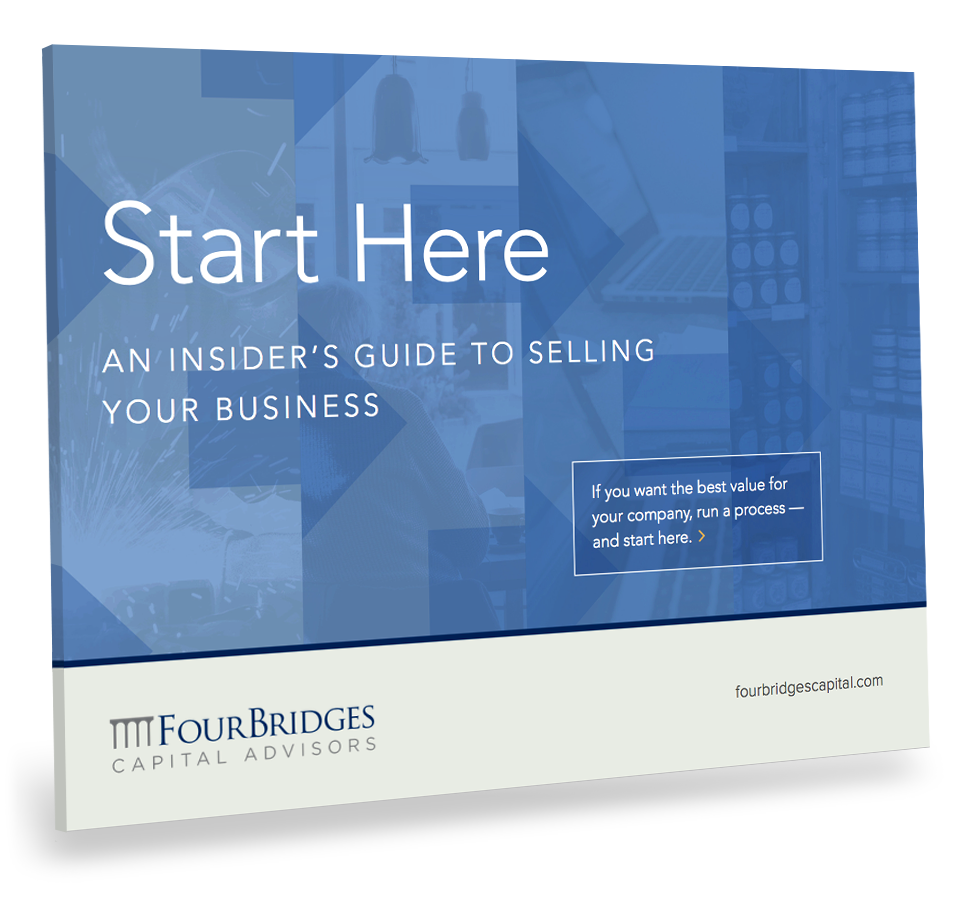Insights & News
5 Tips to Increase Your Business’s Value for Sale
When you are ready to sell your business, several factors will determine its value. Some you can’t control like the economy, but others you can, like the way you run your business.
Here are five tips to increase your business’s value based on our extensive experience positioning middle market companies for sale:
1. Delve into financials. Many companies’ internal financial statements provide only high-level information—a 30,000-foot view. If you hope to attract top-dollar bidders for your business, your finances need to home in and speak to them. Here’s how we advise clients to do that:
- Itemize gross profit — Financial statements should do more than just state how much money you made. They should communicate how you made the money. Break down your numbers so buyers can assess what’s really driving profit. For instance, rather than showing total revenue and expenses for all widgets combined, show this information for each kind of widget you make.
- Enlist a third party — Buyers need more than your take on your company’s financial health. Schedule an independent audit by a CPA. Even if you’re not trying to sell your business, an annual financial review can help you spot small problems before they become big ones—helping you make more money today, not just at the sale. An independent third party audit is the gold standard of financial reviews. If it’s not realistic for your company, as full-fledged audits are expensive, at least get a third-party inventory observation at year end.
- Deliver more — Go beyond Generally Accepted Accounting Principles (GAAP) and create non-GAAP reports that include inventory turns, days receivable and days payable. This shows a buyer you’re going beyond the expected to examine the metrics that determine profitability, rather than just sustainability.
2. Address customer concentration issues. If your company earns more than 20 percent of its revenue from one customer, you have a concentration concern. Buyers want to know your business isn’t overly dependent on one revenue stream. If your company struggles with this, it could take a few years to correct, which means you may not have the time to ameliorate this issue if you’re hoping to sell your business in the near future. The good news is that we’ve found buyers for companies in which 80 percent of their revenue comes from one customer. Concentration isn’t a complete deal breaker, but it can ding your valuation.
3. Bolster and empower your management team. Particularly if the owner is transitioning out of the business, he or she needs to ensure the business is not dependent on his or her customer relationships and personality. Assemble a solid management team, especially one that includes a CFO or controller, and empower management to make decisions and systematize day-to-day business processes.
4. Examine contracts and compliance practices. Do you have long-term contracts with customers and suppliers? Make sure they can be reassigned to whomever purchases your company. What about HR and OSHA compliances? Are you adhering to regulations, especially those concerning environmental issues? All buyers will insist on at least a clean Phase 1 Environmental Study by a third party.
5. Project future growth. Buyers want to be assured that their investment in your company will grow. If you can present a potential buyer with a strategic plan for growth, you can reduce a buyer’s risk and increase your company’s value. Even if you’re not planning to sell your business, a pro forma is an important management tool. It’s easier to get to your desired destination when you have a map.
Of course, it is often difficult for business owners to see what steps they should take to increase their business’s value. Not only are they very busy simply running the business, but it’s nearly impossible for them to take a dispassionate look at their life’s work. That’s where we come in: Experienced investment bankers earn their fee by understanding what it takes to successfully position a business for sale and applying this understanding to each business’s unique situation. This kind of advice can quite literally be a million dollar difference.
